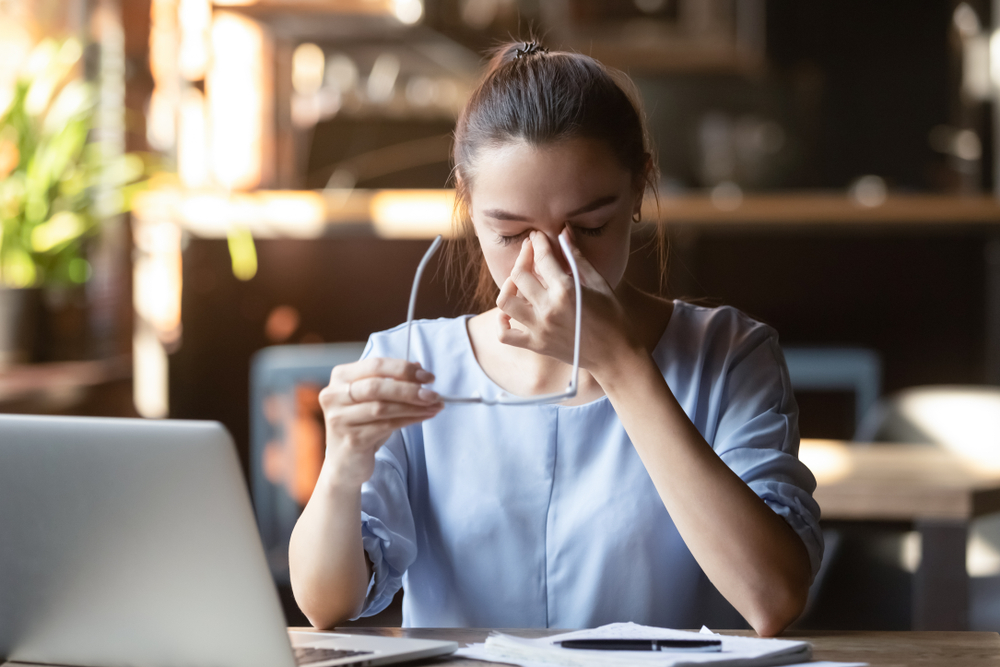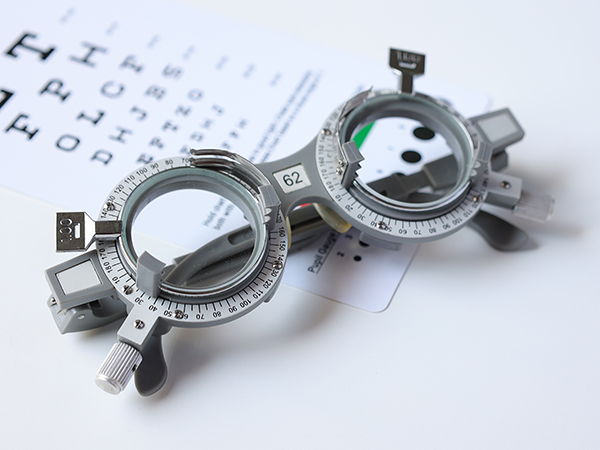Is Your Surrounding Environment Causing Your Dry Eye Symptoms?

From dry air and high heat to dust storms and long drives in the sun, Texans are constantly exposed to environmental factors that can lead to irritated, uncomfortable eyes. If you’ve noticed stinging, redness, or a gritty feeling, your surroundings might be a key part of the problem.
How Your Environment Contributes to Dry Eye
Your surroundings can significantly impact tear film stability and evaporation. Here are some common environmental triggers that may be contributing to your dry eye symptoms:
• Dry or Windy Air: Whether indoors with air conditioning or outside on a breezy day, dry air can cause tears to evaporate more quickly.
• Heaters and Fans: Constant exposure to indoor heating or fans can reduce moisture in the air and on the eye’s surface.
• Screens and Reduced Blinking: Spending hours in front of a computer, smartphone, or TV causes reduced blink rates, allowing tears to evaporate more quickly.
• Airborne Irritants: Smoke, dust, pollen, and other allergens can irritate your eyes and disrupt tear production.
• Low Humidity: Areas with naturally low humidity can worsen symptoms by pulling moisture from the eyes.
Other Common Causes of Dry Eye
While your environment plays a significant role, other underlying factors may be contributing as well, such as:
• Age and Hormonal Changes: Tear production naturally decreases with age, especially in postmenopausal women, making dry eye more common over time.
• Medications: Antihistamines, decongestants, antidepressants, and certain blood pressure medications can interfere with tear production and quality.
• Medical Conditions: Autoimmune conditions like Sjögren’s syndrome, rheumatoid arthritis, and diabetes are often linked to chronic dry eye.
• Meibomian Gland Dysfunction (MGD): When the oil-producing glands in the eyelids become blocked or underperform, it leads to faster tear evaporation and dry eye symptoms.
• Blepharitis: Inflammation of the eyelid margins can disrupt the tear film and contribute to dryness, irritation, and crusting.
• Contact Lens Use: Wearing contacts for long periods or using poorly fitted lenses can reduce oxygen to the eye and contribute to dryness.
What You Can Do to Manage Your Dry Eye Symptoms
To help manage dry eye symptoms, there are several proactive steps you can take at home and in your daily routine. Start by using preservative-free artificial tears regularly to keep your eyes lubricated. Be mindful of your screen time - take breaks every 20 minutes to blink and rest your eyes. Using a humidifier can add moisture to dry indoor air, especially if you live in a climate like Texas where heat and air conditioning are common. Wearing wraparound sunglasses outdoors can protect your eyes from wind, dust, and sun exposure. Eating a diet rich in omega-3 fatty acids, staying hydrated, and gently cleaning your eyelids with warm compresses can also support healthy tear production. While these strategies can offer relief, they’re often most effective when paired with professional care.
When to See Your Eye Doctor
If your dry eye symptoms persist despite at-home remedies, it may be time to consult with an eye care professional. Persistent discomfort could indicate an underlying issue that requires more targeted treatment.
At Eyecare Experts, we offer advanced therapies designed to address the root cause of dry eye, rather than just temporarily relieving symptoms. One effective option is Intense Pulsed Light (IPL) therapy, which targets inflammation and helps restore healthy function to the meibomian glands.
Another innovative treatment is TearCare®, a comfortable, wearable device that delivers controlled heat to the eyelids. This heat gently loosens blockages in the oil glands, allowing for better tear quality and improved comfort.
We also offer iLux®, an in-office treatment that combines gentle heat and pressure directly to the eyelids. This process helps remove obstructions in the glands and stabilizes the tear film for longer-lasting relief.
Find Lasting Relief from Dry Eye
Environmental factors are often an overlooked contributor to dry eye symptoms. By understanding how your surroundings affect your eyes and recognizing when it’s time to seek professional care, you can take proactive steps to feel more comfortable and protect your vision.
If you're experiencing persistent dry eye symptoms, schedule a consultation at Eyecare Experts to explore advanced treatment options tailored to your needs. Contact our office in Houston, Sugar Land, or Stafford, Texas, by calling (346) 220-3200 to book an appointment today.


